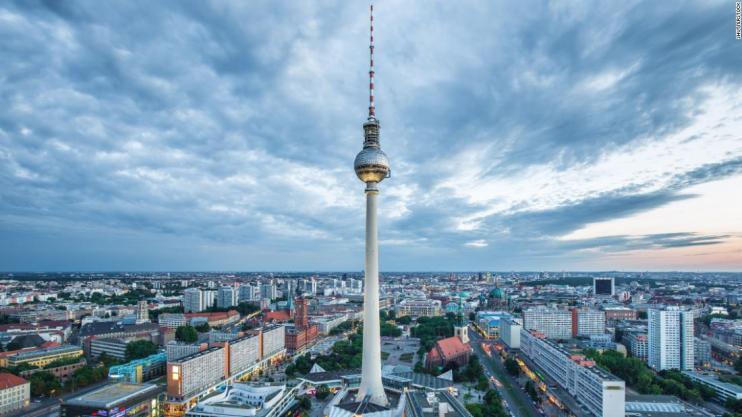Germany one of the EU’s ‘growth laggards’ as economy shrinks slightly in third quarter

Germany’s economy shrank slightly in the third quarter, data showed on Monday, as Europe’s largest economy continues to be weighed down by weak purchasing power and higher interest rates.
Gross domestic product fell by 0.1 per cent quarter on quarter in adjusted terms, the federal statistics office said.
A Reuters poll had forecast the economy to shrink by 0.3 per cent.
“These data alone underline that the German economy has at least become one of the growth laggards of the euro zone,” said Carsten Brzeski, global head of macro at ING.
Looking ahead, the ongoing pass-through of the European Central Bank’s monetary policy tightening, still no reversal of the inventory cycle and new geopolitical uncertainties will continue weighing on the German economy, Brzeski said.
“The German economy looks set to remain in the twilight zone between minor contraction and stagnation not only this year but also next year,” Brzeski said.
The contraction in the third quarter is not seen as an outlier as Commerzbank expects the German economy to contract again in the winter half-year.
“Consumption is unlikely to recover as optimists had hoped,” Commerzbank’s chief economist Joerg Kraemer said.
Household consumption fell in the third quarter, as high inflation continued to erode consumers’ purchasing power.
Due to base effects in food and energy prices, Germany’s headline CPI rate is expected to fall further in October. Inflation data will be published later on Monday.
Higher-than-forecast inflation is seen as one of the main risks by central bankers, as it could extend the tightening campaign of central banks, keeping interest rates higher for longer.
Economists will pay close attention to national inflation data from Germany and Spain, as they are published one day before the euro zone inflation data release.
Spain’s European Union-harmonised 12-month inflation was at 3.5 per cent, up from 3.3 per cent in September.
Euro zone inflation is expected to ease to 3.2 per cent in October from 4.3 per cent in September, according to economists polled by Reuters.
While consumption in Germany was a drag on GDP, capital investment made a positive contribution, the statistics office said.
“The net result, however, is that Germany’s economy is now firmly stuck in the mud,” Pantheon Macroeconomics’ chief eurozone economist Claus Vistesen said, adding the he doubts the economy will emerge from the mud in the fourth quarter.
The statistics office, however, revised the figure for the second quarter to a modest 0.1 per cent expansion, from stagnation.
The figure for the first quarter was revised to stagnation, from a previous contraction that had led the economy into recession. A recession is defined as two consecutive quarters of contraction in GDP.
Reuters – Maria Martinez and Miranda Murray
